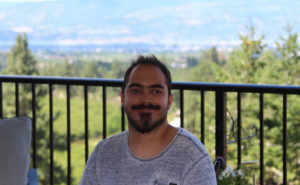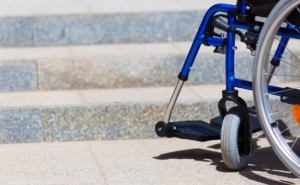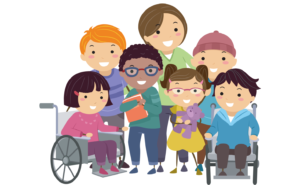(This story was shared in response to our Youth Blog call for submissions. All opinions are those of the writer. Please share your story!)
By: Erin Canavan
My initiation into the social microcosm of graduate education was over crackers and cheese, several bags of candies, with 4 other people I’d met in my very first lecture. As we walked out of the lecture theatre, we began formal introductions, establishing an immediate rapport through our shared inability to see the point of the three-hour developmental psychology lecture we’d just endured, and making a pact to bring candies every week to see us through the semester.
Getting to know each other
But our light-hearted chat, apparently aimed at ‘getting to know each other,’ quickly evolved into a not-so-subtle interrogation of each other’s educational histories. It began, obviously, with the two most crucial questions for any person who’d just finished 12 years of formal, compulsory schooling: ‘What is your GPA?’ and ‘What school did you go to?’ With a salty cracker and smear of cheese halfway to my mouth, I quickly swallowed, and, suddenly overly conscious of the judgements that were undoubtedly going to be aimed in my direction, responded in the smallest voice possible, ‘A 4.0 GPA and a Catholic all girls’ school.’ Immediately I sensed the implicit ascriptions these people were assigning to me – I was being judged as a snob who wasn’t exceptionally intelligent or talented. (The fact that I went on to graduate with second class honours and as a national award winner now makes this anecdote deliciously ironic. Take that, people who made snap judgements about my abilities and achievements as a fresh-faced university student).
The conversation changes
The critical, statistical information about academic ability and social standing now stored away for future reference when comparing GPA’s and the quality of teaching placements, our discussion took a slightly more personal turn. We started talking about just why we chose education as our career. My colleagues spoke wistfully of that one teacher who inspired them, the family legacy in education that they planned to sustain, or their innate desire to support the lifelong learning of small children (always only in mainstream schools, though). How was I supposed to share my story, one that is pretty intimate and can’t help but invite a series of complex, protracted follow-up questions, after all of these romantic school experiences and lifelong dreams of ‘making a difference’ in education?
Well, I’m here because I have cerebral palsy and had some really crap experiences at school that I want to change, because I’d hate for other kids with disabilities to experience what I did?
HAHAHA!
No.
Ripping off the Bandaid
One thing I’ve learnt in my twenty-two years is that there is no easy way to rip off a Bandaid so firmly glued as the one that identifies you as having a disability. So, instead of the blunt, brutally honest tack I really wanted to take in response to that question, I was vague and noncommittal. ‘It’s just something I’ve always been passionate about,’ I replied, hating myself for responding with such a clichéd answer, but at the same time, reluctant to reveal a fundamental part of my identity to people who I barely knew. I worked to maintain my façade of ‘normalcy’ throughout my undergraduate studies, and it wasn’t until days before our graduation ceremony that my colleagues learned the connection between passion and personal experience for me (funnily enough, I wasn’t even the one who told them. The local paper published a ‘triumph over adversity’ story about my CP and my apparently miraculous achievement of completing a tertiary degree that they all conveniently read).
The moral of the story
So, what do I want you to take from this story (apart from a slightly more diversified understanding of disability and how it looks)? Quite simply, the idea that passion is the prerequisite for any career path, and it comes in many different forms – just because my definition of passion for my career isn’t conventional doesn’t mean it’s not valuable.
 Erin Canavan is a teacher studying her Master’s degree in special education and is passionate about destigmatising societal perceptions surrounding disability through education. In her spare time, she is involved in her local committee for the Australian College of Educators, she writes about various academic and non-academic topics, plays the clarinets and reads as many books as she can.
Erin Canavan is a teacher studying her Master’s degree in special education and is passionate about destigmatising societal perceptions surrounding disability through education. In her spare time, she is involved in her local committee for the Australian College of Educators, she writes about various academic and non-academic topics, plays the clarinets and reads as many books as she can.
Share your story on the Youth Blog
 Meet our Members: Matthew
Meet our Members: Matthew Meet our members: Ethan
Meet our members: Ethan Back-to-School Tips For Children With Cerebral Palsy
Back-to-School Tips For Children With Cerebral Palsy Living with Cerebral Palsy by Melissa Lyon
Living with Cerebral Palsy by Melissa Lyon

